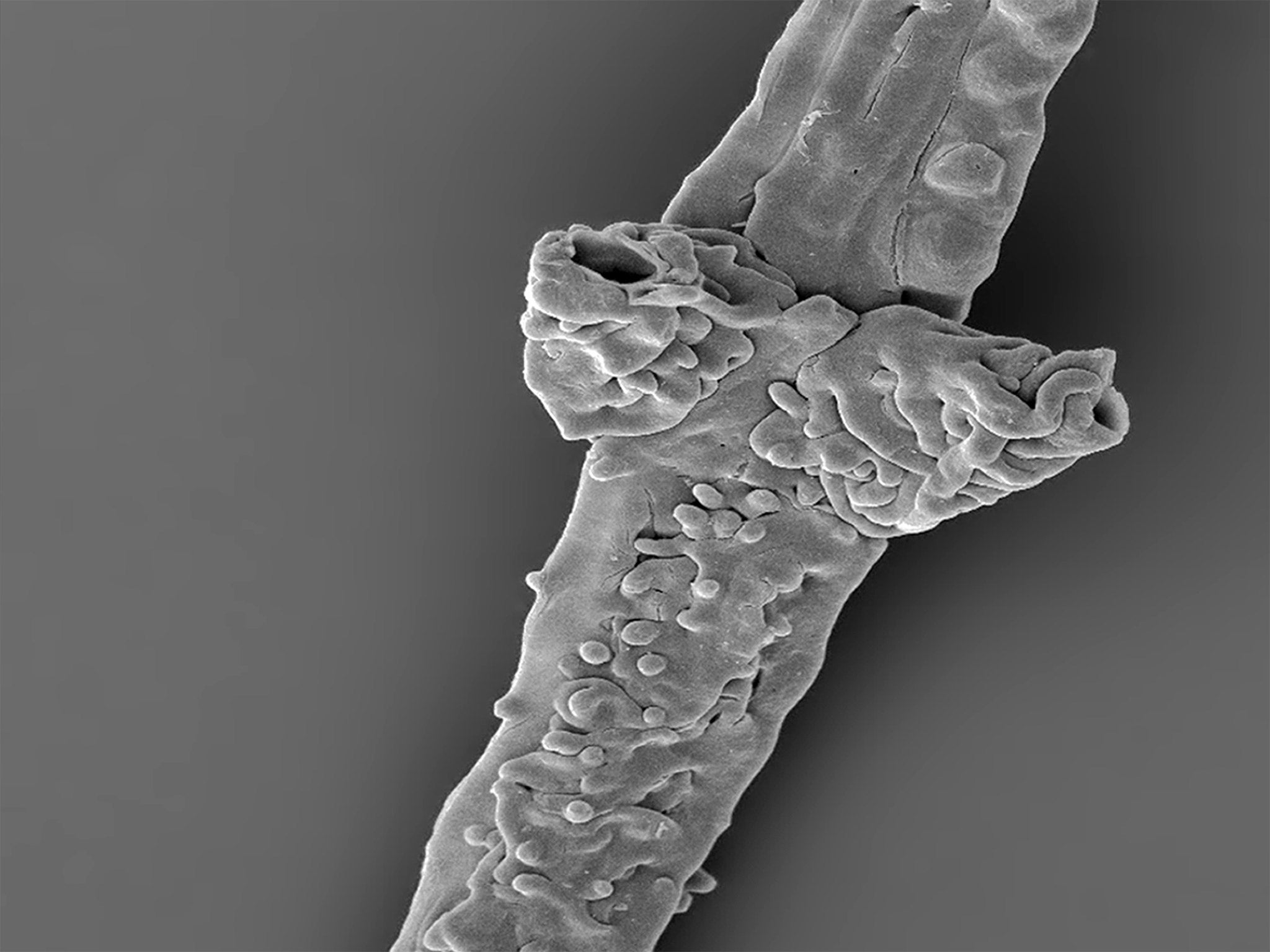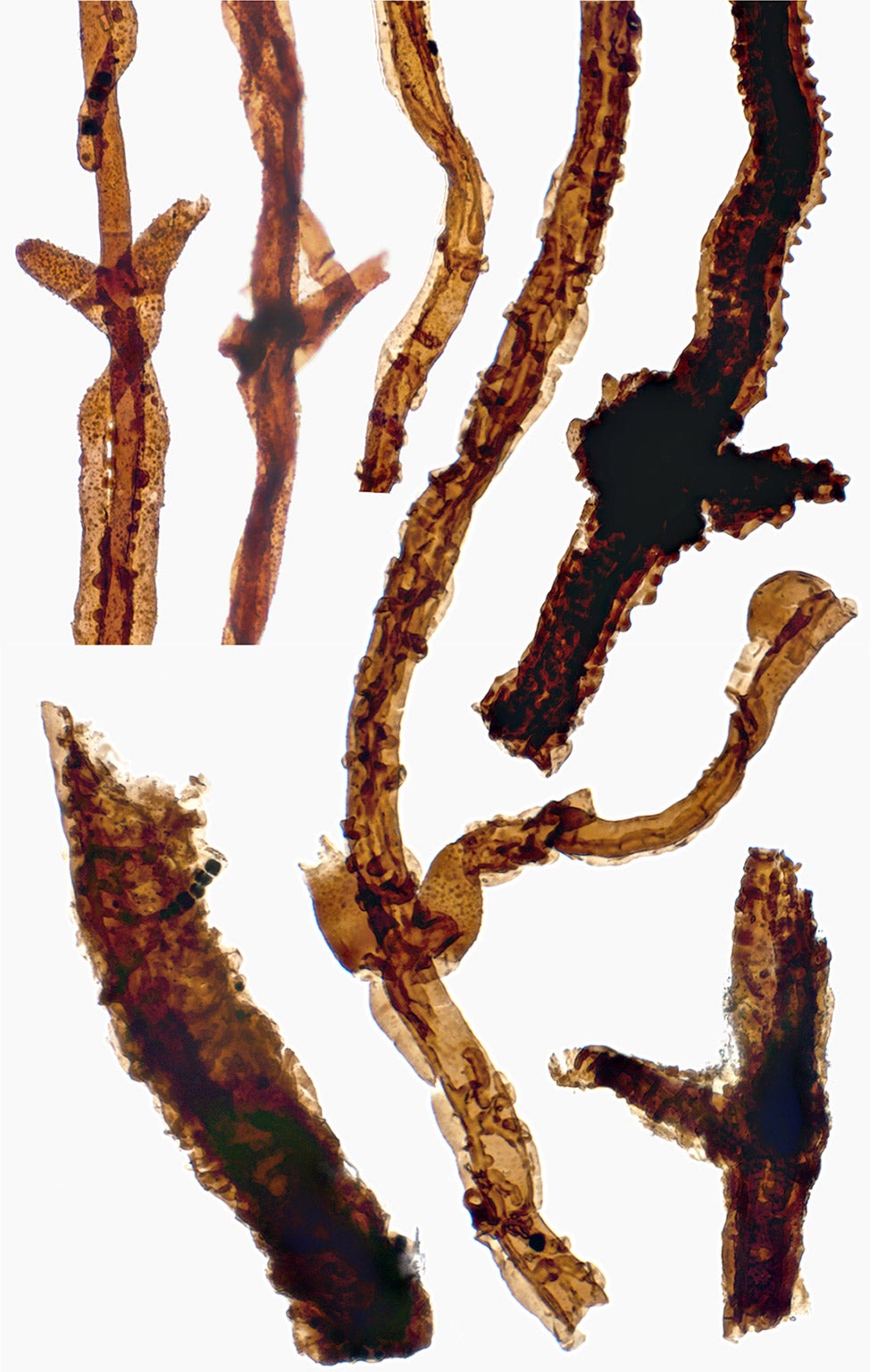Fossilised remains of oldest form of land-dwelling life ever discovered found on remote Scottish island
The tiny Tortotubus fungus helped create life as we know it and is believed to date back some 440 million years

Your support helps us to tell the story
From reproductive rights to climate change to Big Tech, The Independent is on the ground when the story is developing. Whether it's investigating the financials of Elon Musk's pro-Trump PAC or producing our latest documentary, 'The A Word', which shines a light on the American women fighting for reproductive rights, we know how important it is to parse out the facts from the messaging.
At such a critical moment in US history, we need reporters on the ground. Your donation allows us to keep sending journalists to speak to both sides of the story.
The Independent is trusted by Americans across the entire political spectrum. And unlike many other quality news outlets, we choose not to lock Americans out of our reporting and analysis with paywalls. We believe quality journalism should be available to everyone, paid for by those who can afford it.
Your support makes all the difference.The fossilised remains of the oldest form of land-dwelling life ever discovered have been found on a remote Scottish island, according to a report.
The tiny Tortotubus fungus, believed to date back some 440 million years, helped create life as we know it, playing a key role in the production of the first fertile soils that allowed plants to flourish and in turn attracted animals to move from the sea to the land.
The fossil – shorter than the width of a human hair – was discovered by Cambridge University scientists on the inner Hebridean island of Kerrera, off Oban, and in Gotland, Sweden, The Daily Telegraph reported.

One of the researchers, Dr Martin Smith, author of a paper published in the Botanical Journal of the Linnean Society, said: “During the period when this organism existed, life was almost entirely restricted to the oceans: nothing more complex than simple mossy and lichen-like plants had yet evolved on the land.
“But before there could be flowering plants or trees, or the animals that depend on them, the processes of rot and soil formation needed to be established.”
Fungus plays a key part in creating deep, nutrient-rich soils, probably by breaking down bacteria or algae that are thought to have been present on the land.
“What we see in this fossil is complex fungal ‘behaviour’ in some of the earliest terrestrial ecosystems – contributing to soil formation,” Dr Smith said.
Its discovery also suggests that mushrooms could have been the first complex organisms on land.
“This fossil provides a hint that mushroom-forming fungi may have colonised the land before the first animals left the oceans,” Dr Smith said. “It fills an important gap in the evolution of life on land.”
Join our commenting forum
Join thought-provoking conversations, follow other Independent readers and see their replies
Comments